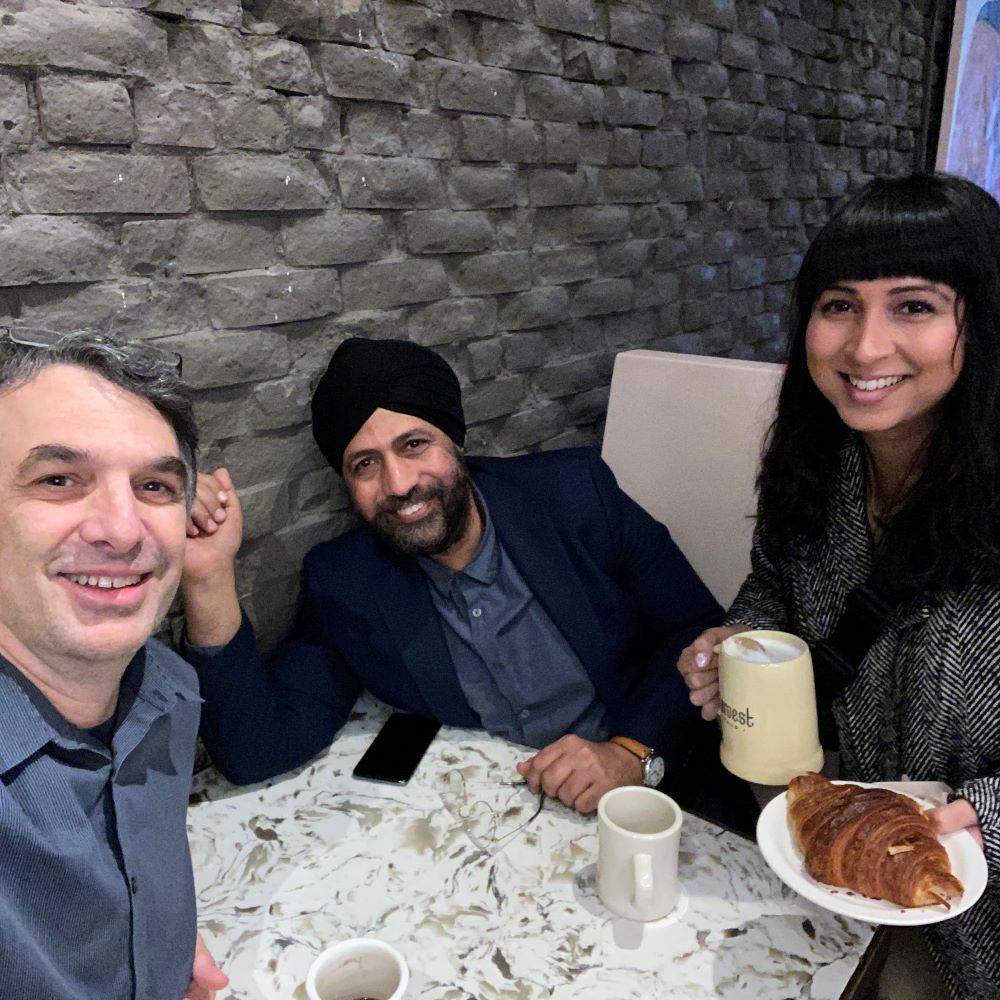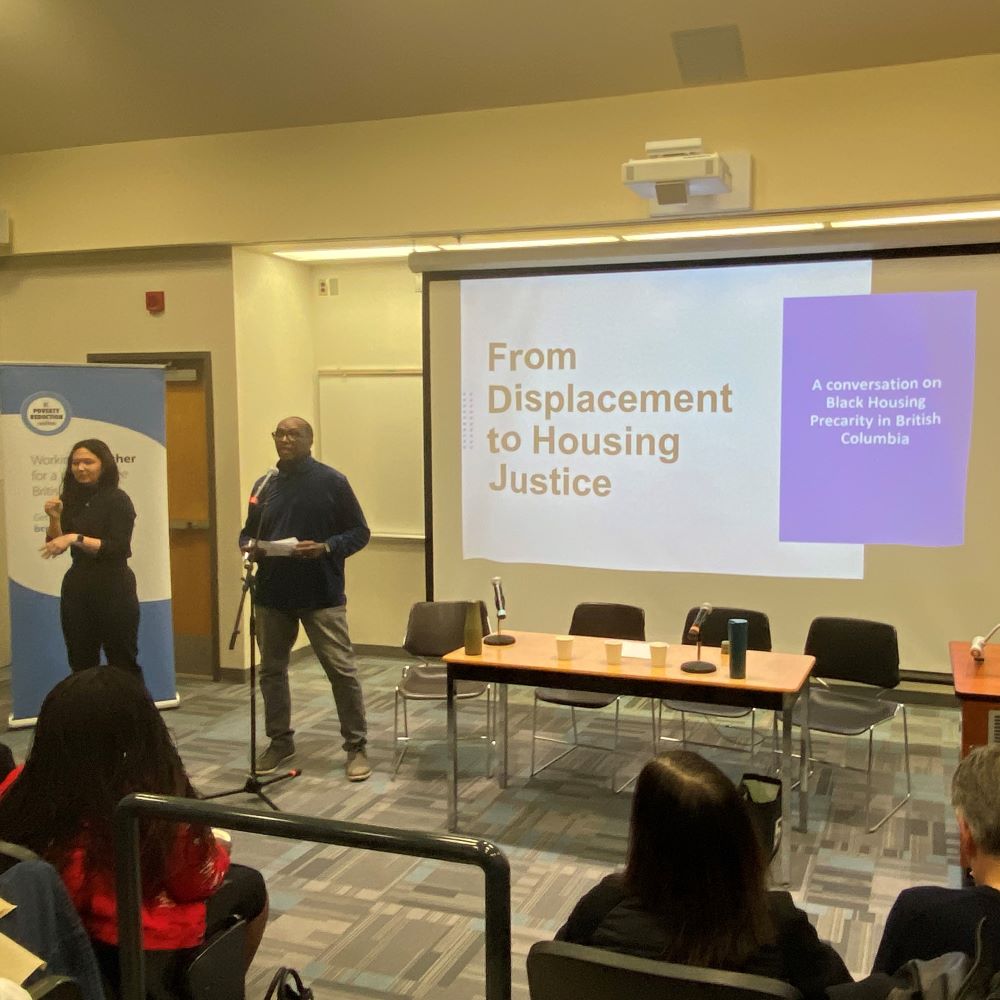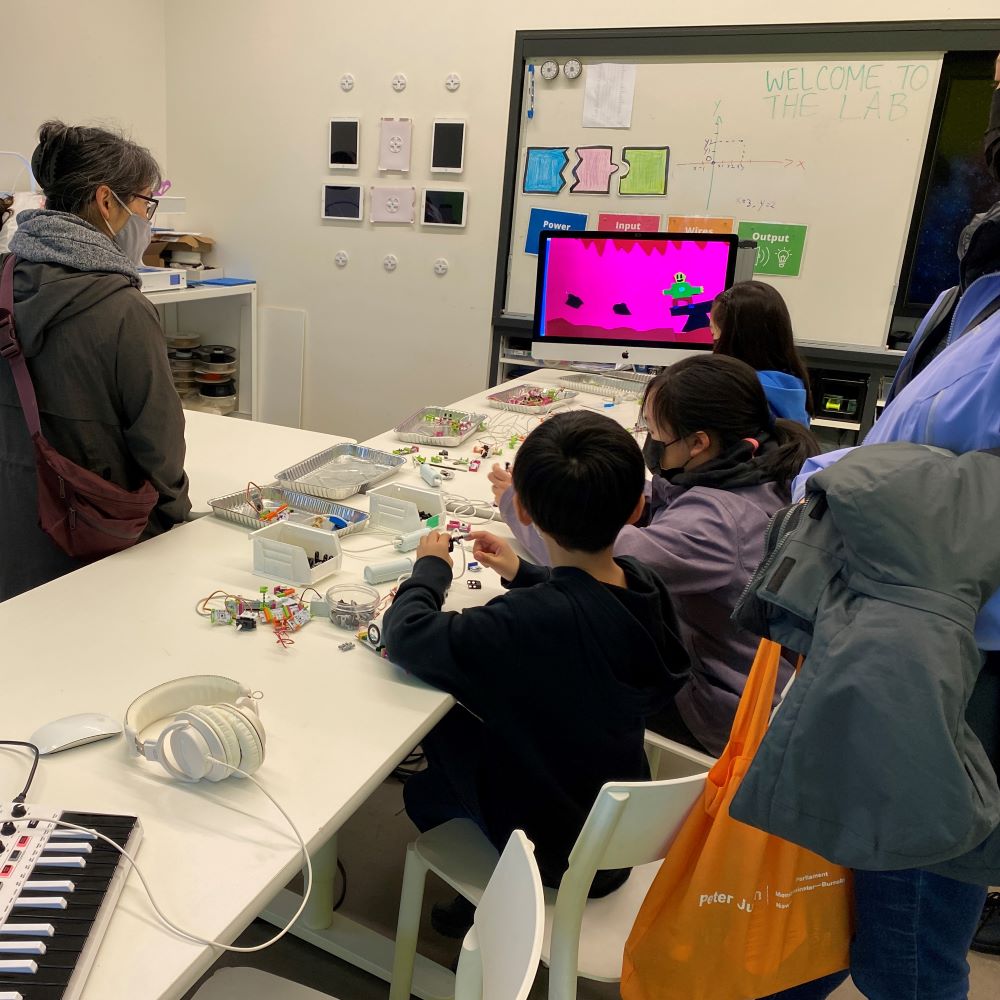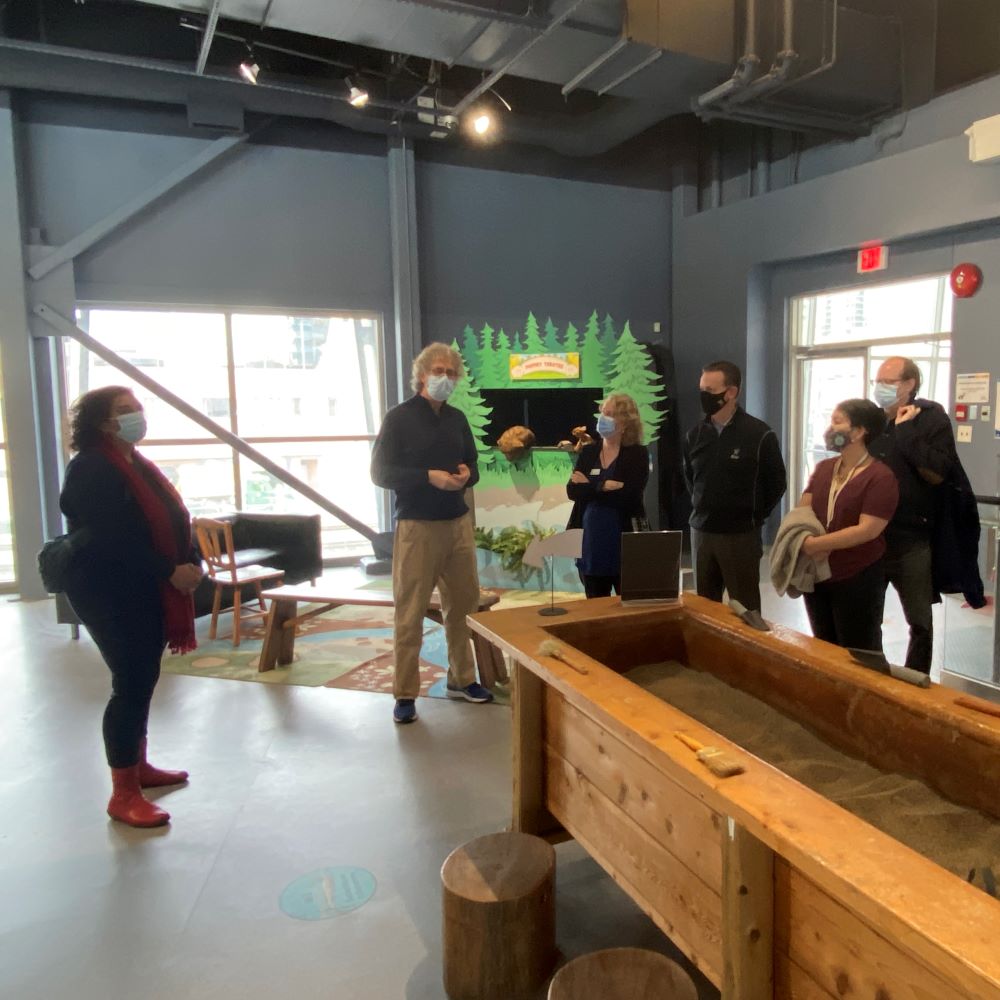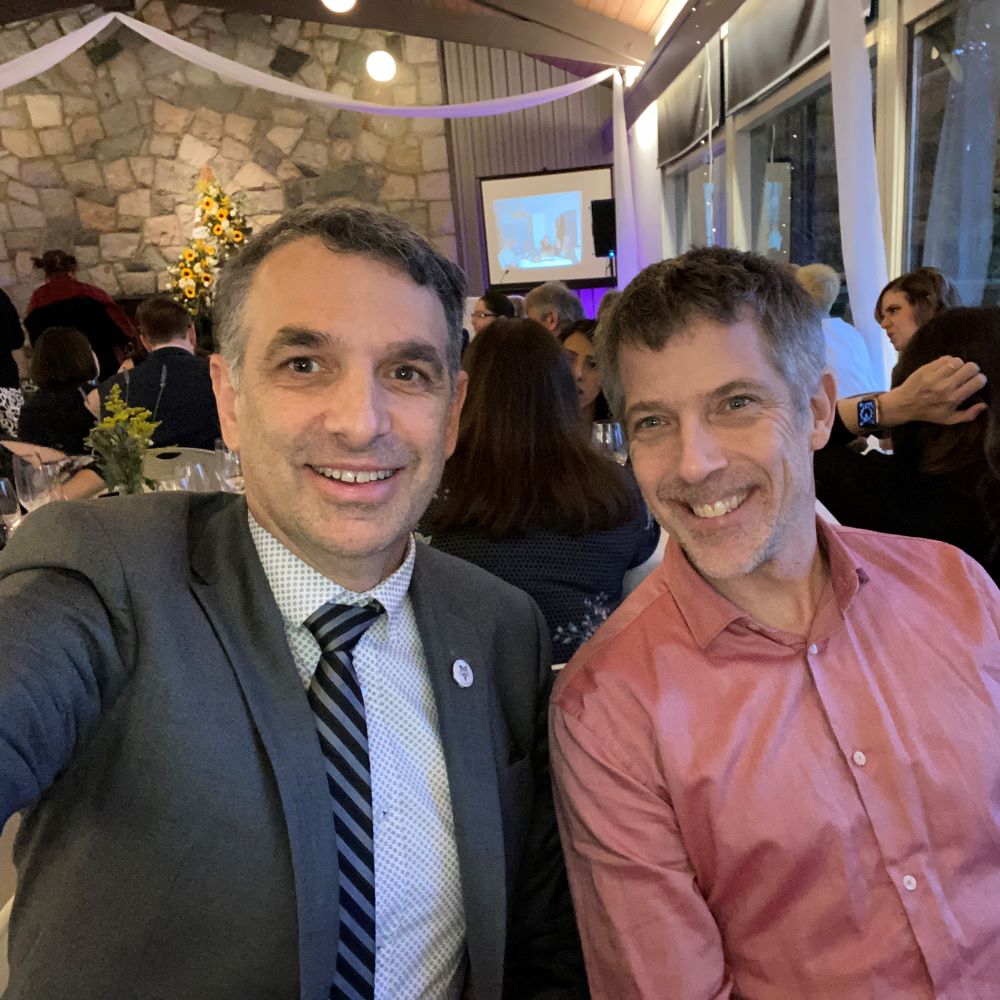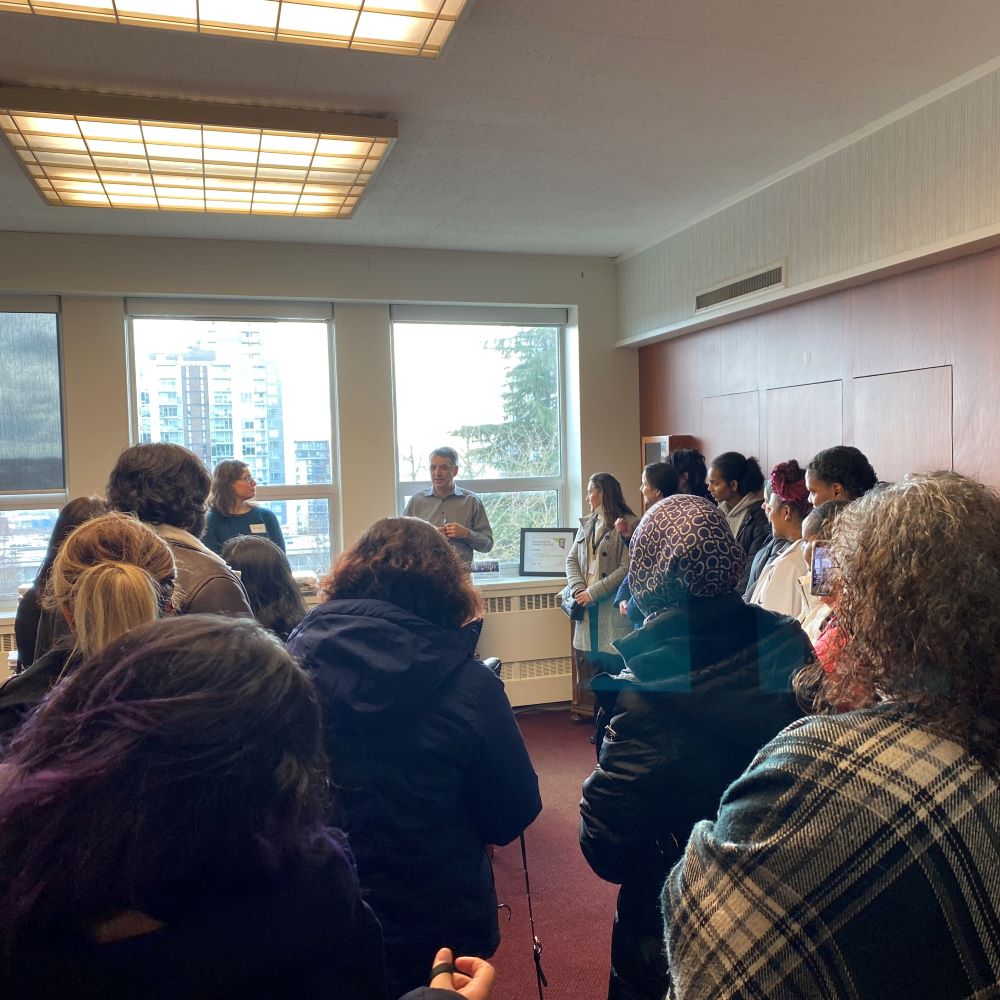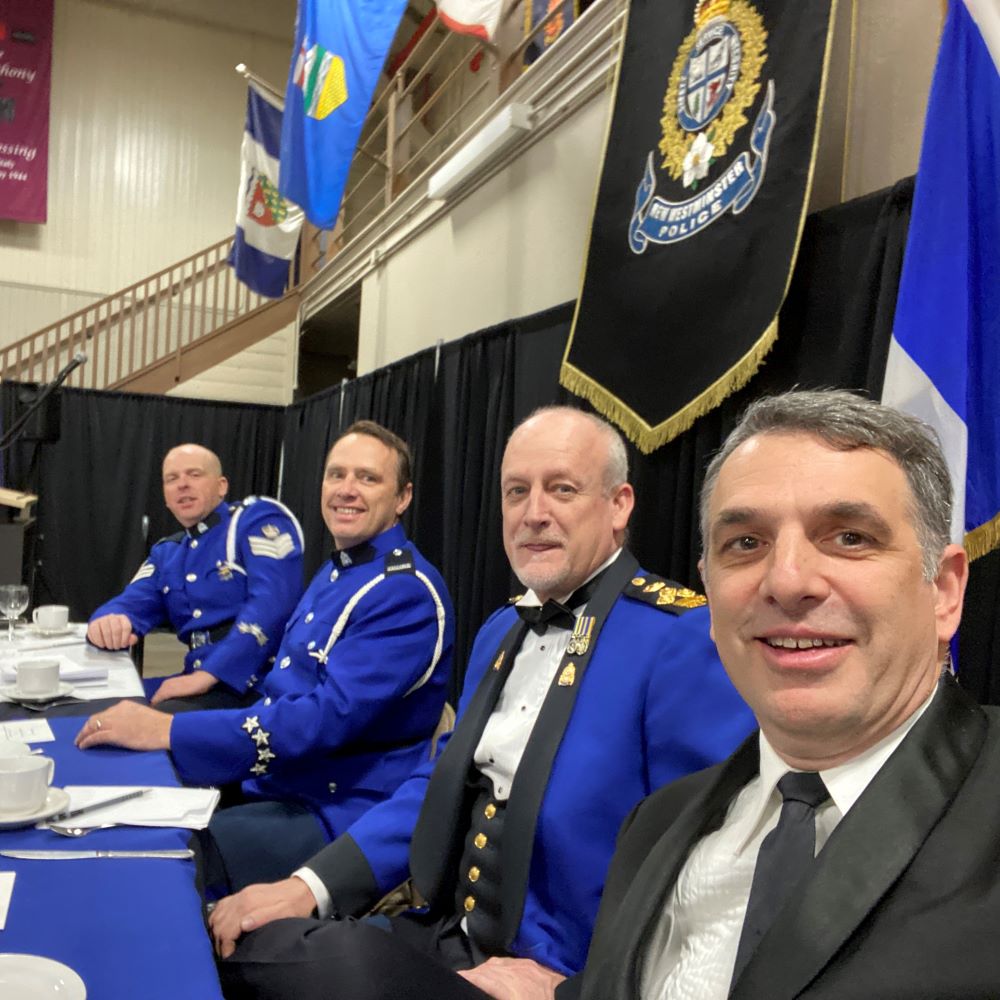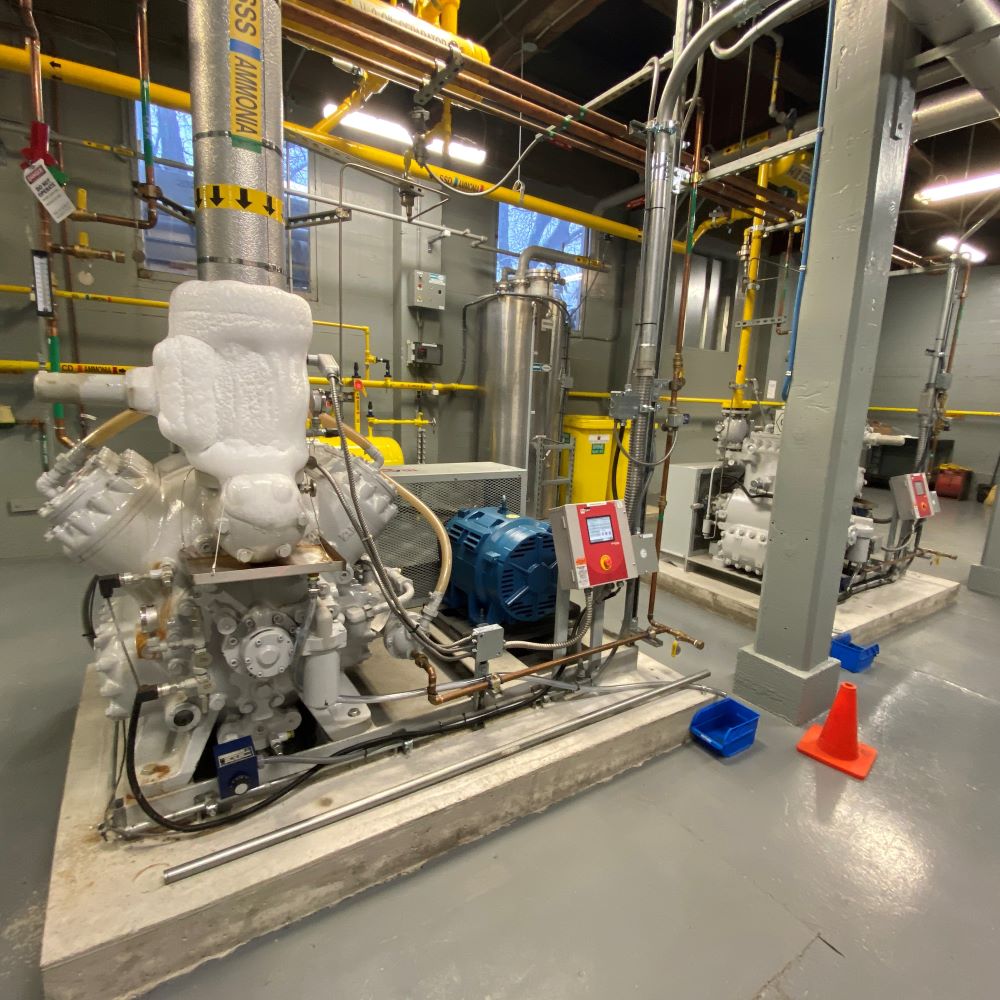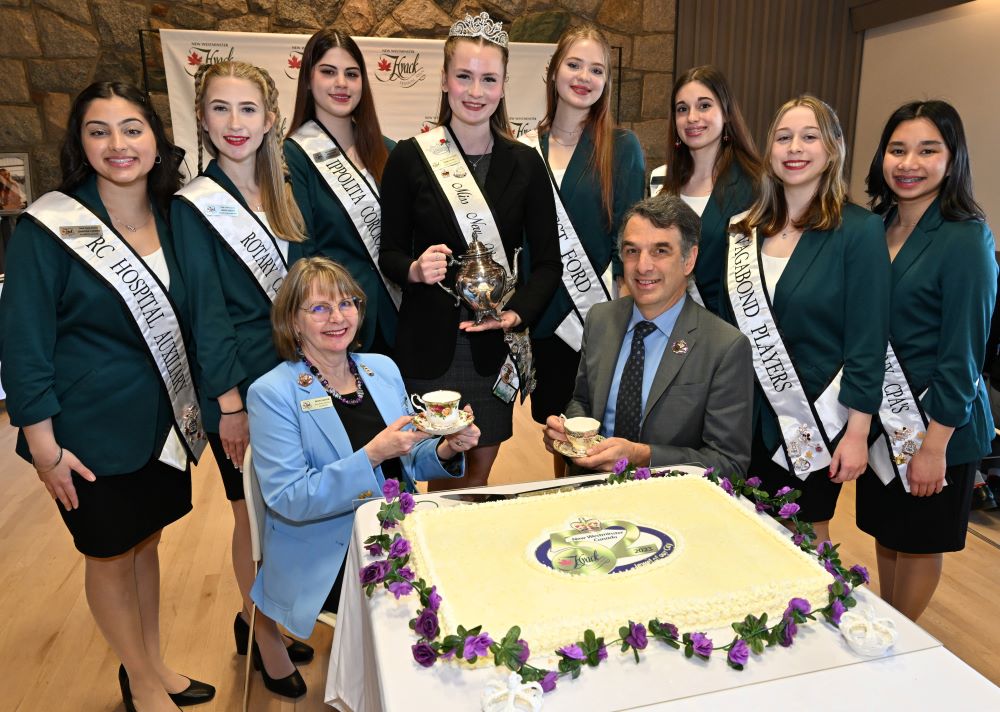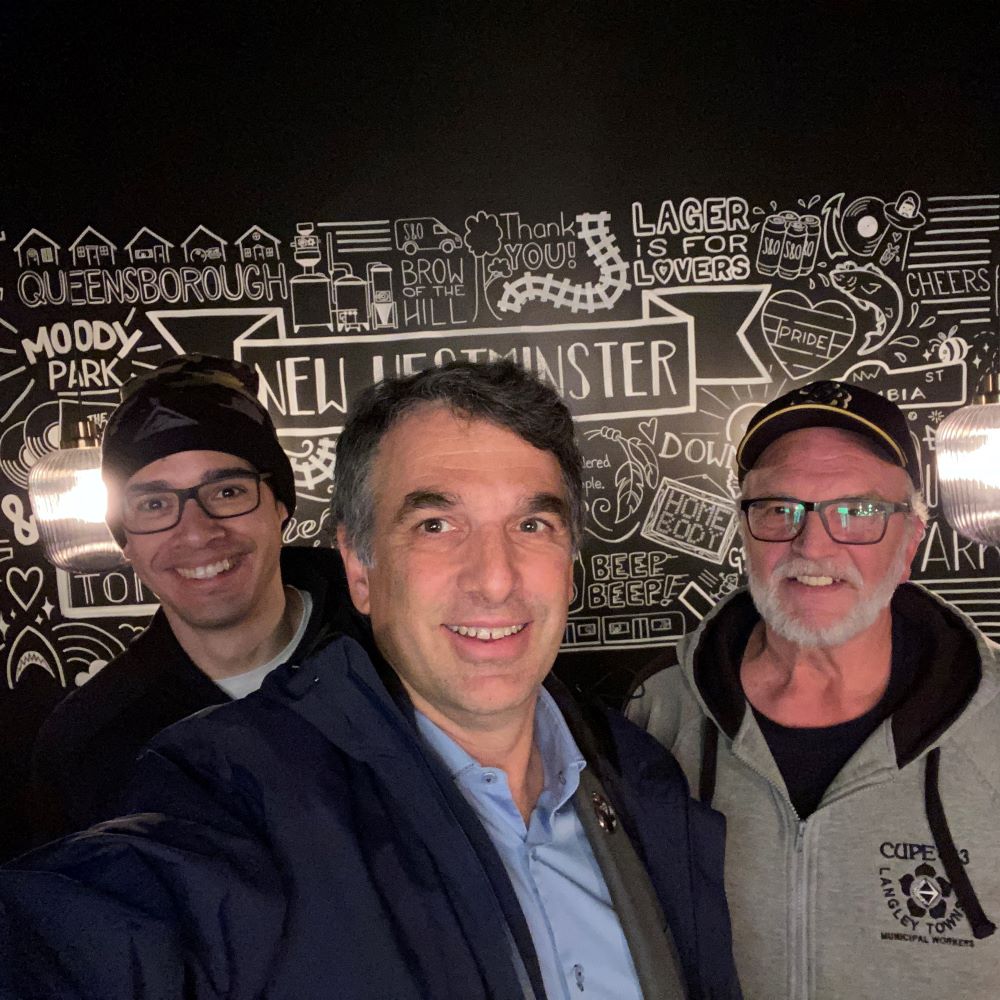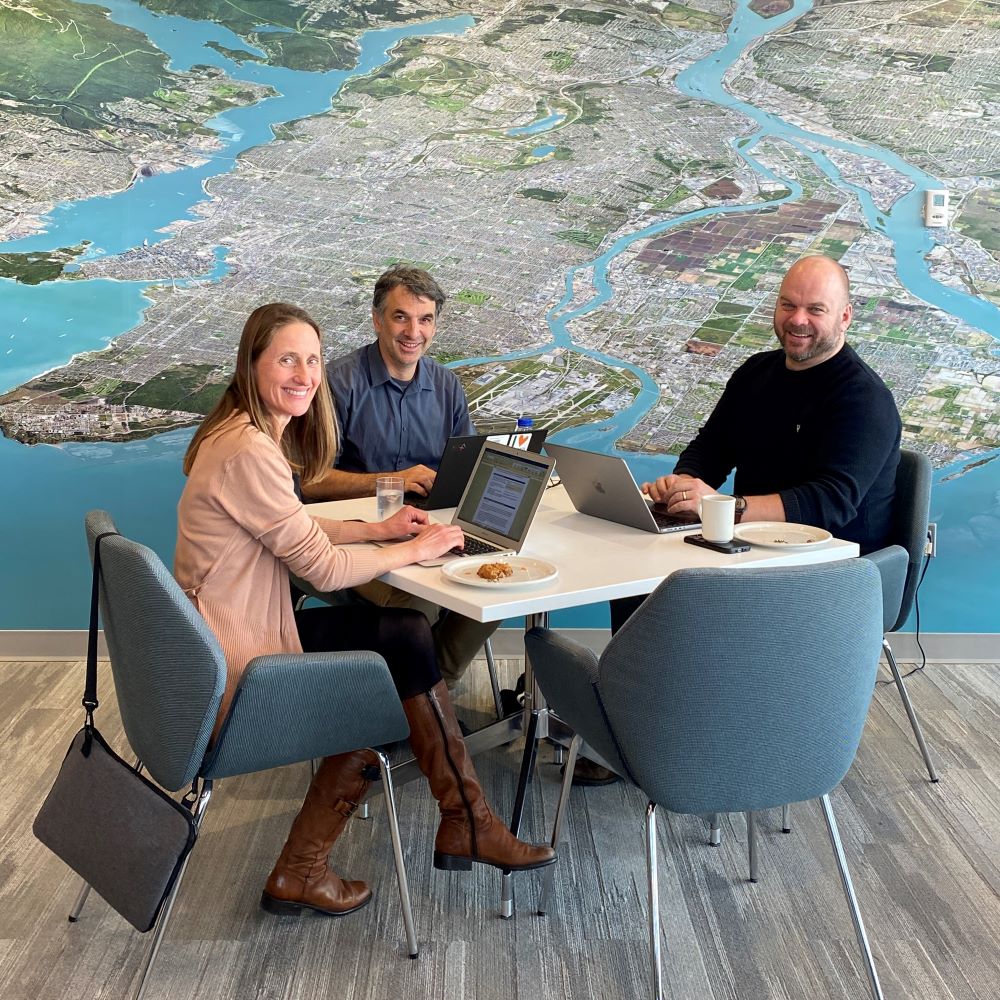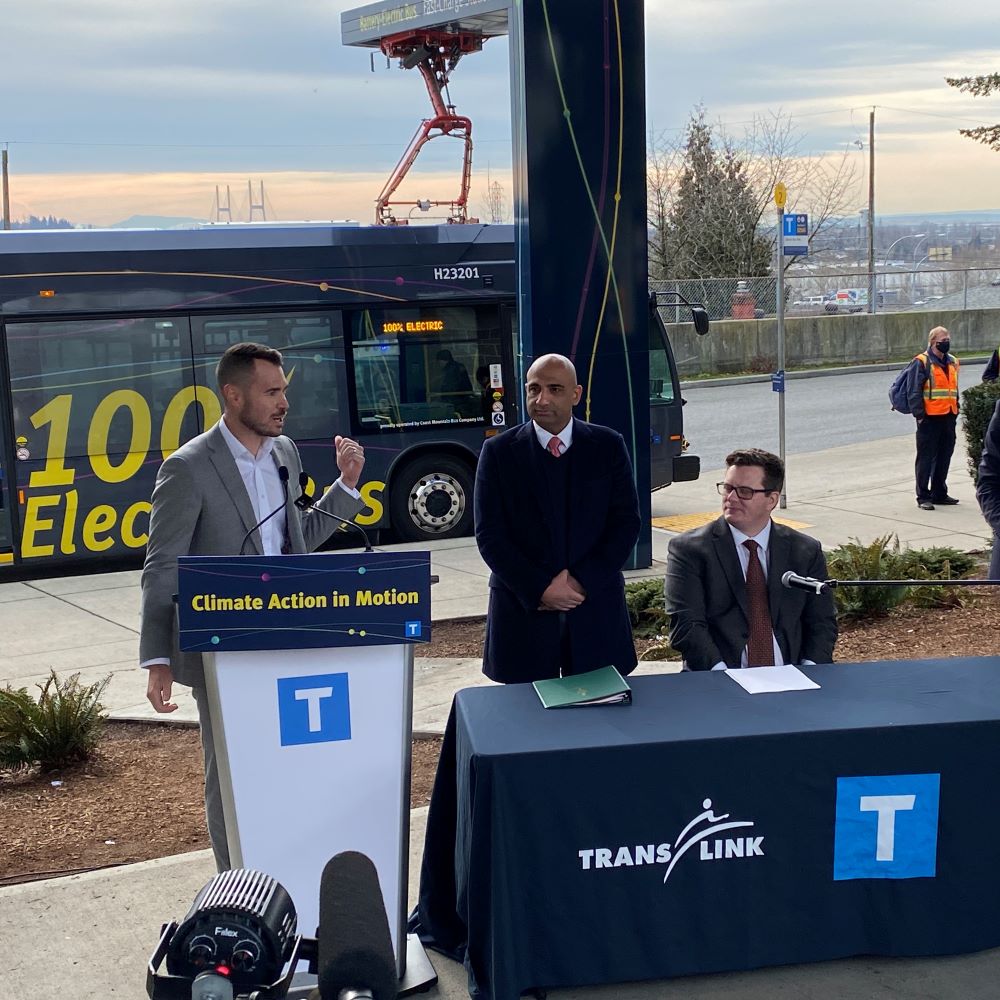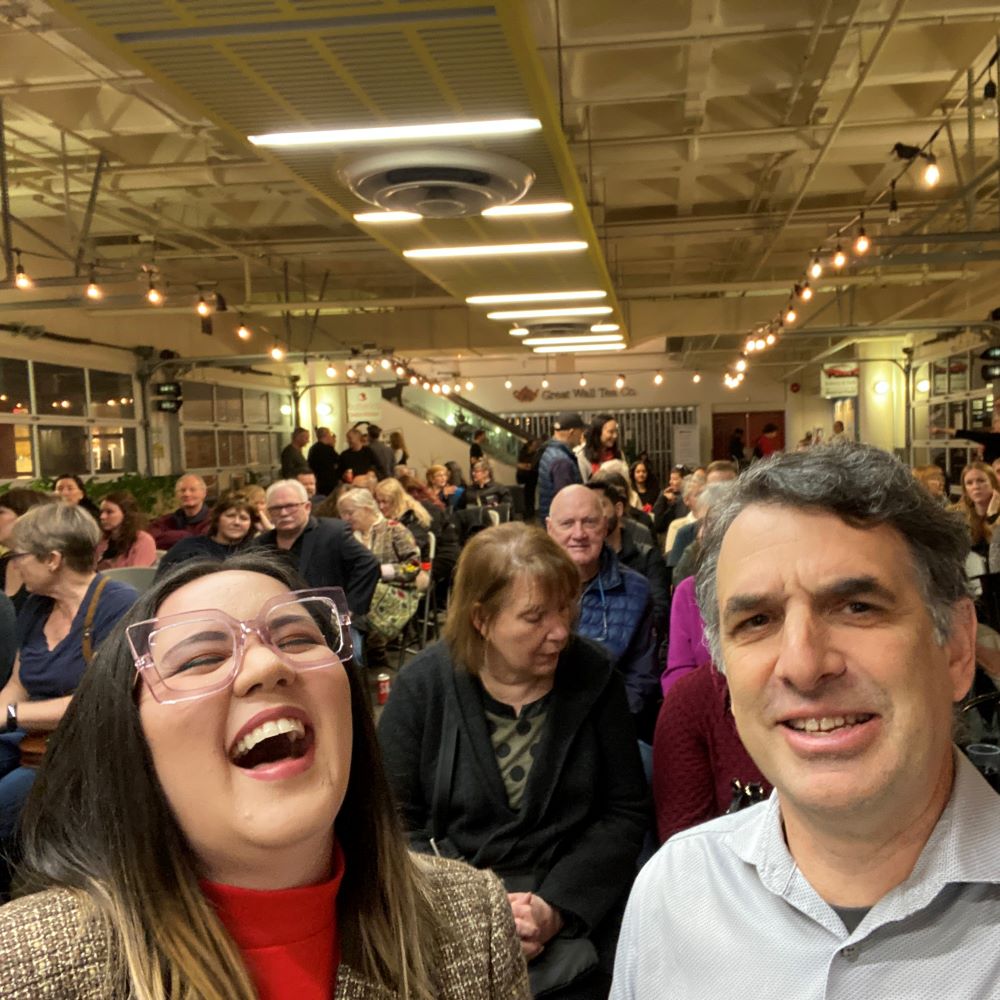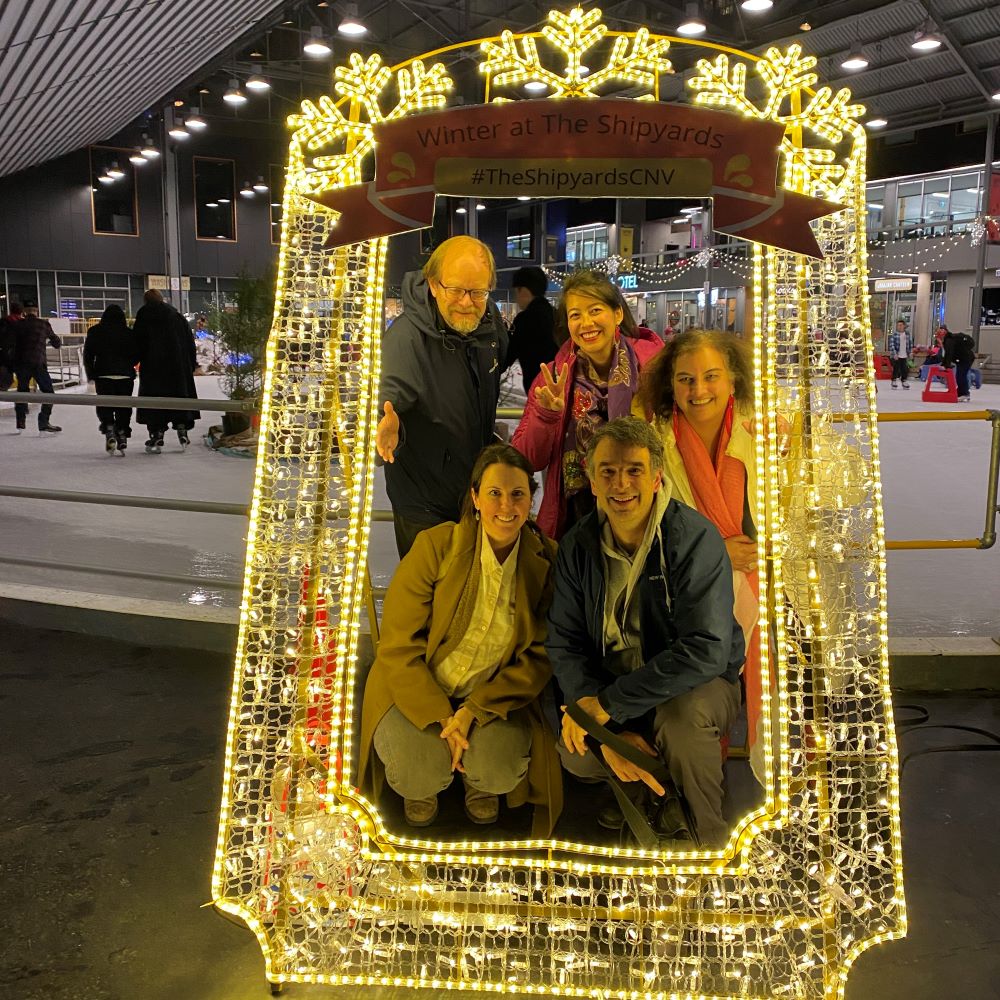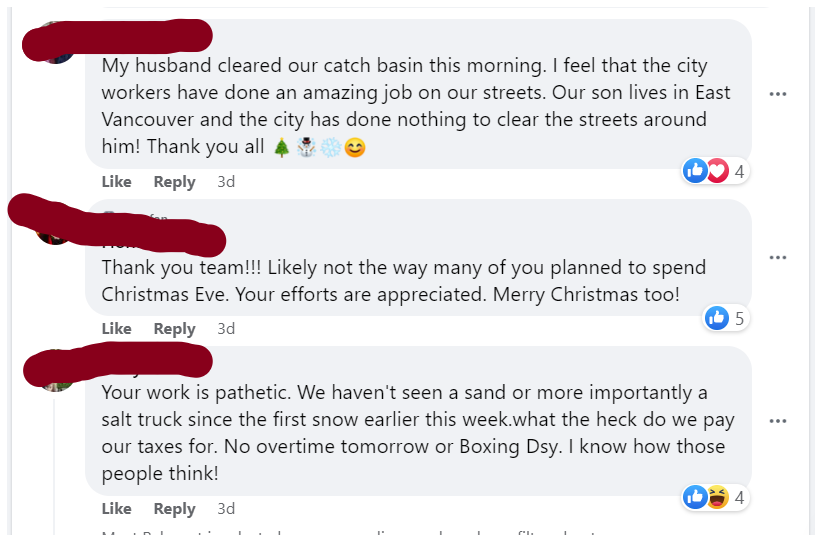It has been an intense fall in the work/life balance front, and I almost forgot that I should probably mark the date on the calendar – one year since the election of 2022.
I haven’t had a chance to sit down and think about what “one year” means. I often feel dates like this are arbitrary, and so much of the important work we do in the City is incremental and based on long-term and system thinking that it doesn’t lend itself to tracking arbitrary dates. I also recognize years-in-review suit the listicle thinking of modern communications. However, I am instead going to do a bit of public self-reflection instead of talking about accomplishments that I might share with my incredible Council Team and the staff of the City. Maybe those will come in a follow-up.
Yesterday I spent several hours at the New West Fire and Rescue Open House at Glenbrook Fire Hall. Doing what I occasionally do – sitting in a booth taking questions from everyday folks, hearing concerns and talking about the City and the work of Council. One of the most common questions (after “are you really the Mayor!?”) is something around the theme: “What’s it like to be Mayor?” or “Is it what your expected?” or “How are you enjoying it?”
I usually quip an answer around “I’m experiencing it, that’s for sure” (chuckle), because it is hard to describe what something is like when you are so immersed in it, and it is hard to remember what I expected before I got here. The line of questioning does inspire some thoughts that are probably appropriate to go through after year one and it almost looks like a listicle.
First off, it is busy (and busy is rarely a good thing).
An interesting shift from time on Council to this job is how more all-encompassing this job is, and I thought Council was intense. The challenge is when things are coming at you in a constant stream, it is hard to know what actually needs current attention and what needs to be ignored – or what you can afford to ignore. If you are always reacting to what just arrived, you never have the time to do any long-term planning, or to concentrate on a single thing for a long enough period of time. The risk is you slip into a mode where you are reacting instead of thinking or planning.
There are many ways this manifests. I cannot possibly reply to every email I get, and can only reply to very few in timely and meaningful ways. I like replying to emails, and feel most people deserve a thoughtful response to their concern if they took the time to write. But there is only so much thoughtful time in a day. This is why I simply don’t have time to write blogs like I used to. I committed to the Council reports, but the longer discussions about bigger topics are just too hard to take the time to sit down and write.
As for the constant small decision making, it can get tiring, mostly because of the vast array of topics the City’s work touches. It seems every decision requires a shift in gears – from discussing sewer grants to community consultation scheduling to housing advocacy to discussing sidewalk repairs to flag raising events or parking rules – you never know what you will be asked next. It is exciting and dynamic, but at the end of the day, it is exhausting.
Secondly, it is at times emotionally difficult.
Bad news is all around us; global bad news and local bad news. Some I have no control over, while some are right in front of me. There is also some over which I have limited control, but have a responsibility to address. There are no two ways about it, some people in our community are suffering. Some lack a home; some lack support for their health care needs; some lack resources to feed and fully care for their family. These residents are not abstractions, they are people I see every day and talk to when walking around the City. The idea that I carry a Naloxone kit in my walks should be terrifying, but instead it is banal.
I was pointed to a radio show last week where people in my community with power and voice used those privileges to contribute to the stigma thrust upon the most vulnerable members of this community. Conflating not having a home or living with an addiction with criminality. Dehumanizing the people who most need help in our community. Framing them as the problem and propagating untruthful messages about the actual problem while providing no solutions. This both angers and saddens me, and I struggle to find a positive response, because the dehumanization is the entire point of that narrative. Separating community into “us” and “them” gives people reason to not care about their neighbours and makes it harder to build support for and do the work we need to do, stops us from acting with the optimism and hope we need to make a positive difference in our community.
Fortunately, it is also rewarding.
There are algorithms culturing negative narratives in social media and shock radio, but talking to people in the community gives such a different impression of what this community is and aspires to be. I sit at the Ask Pat booth or run into people on the Quayside or at the Brewery, and people love New West. Overwhelmingly, people appreciate the work the City is doing during challenging times, love our spaces and places, and like the balance we strike in NewWest. There is optimism.
This is shown by the growing number of young families settling here, by the way people show up when events occur, and by how engaged folks are at community meetings like last week on the 22nd Street Plan. It also shows up in the public surveys and polling where we find (for example) that the vast majority of New West residents feel safe in this community, and appreciate the way we find balance in our annual budgets.
When people come to me and say “thanks”, be it for the support their organization received or because they had a good experience at City Hall or just because they got their question asked at the booth, it is nice to be able to be at the receiving end of gratitude for the work that many, many people do together.
And it is Uplifting.
I have said it so many times over the last year, this community is about connections. There are so many people and organizations doing good work in this community to lift their neighbours, it is hard not to have a full heart. Sports clubs, social services, arts groups, businesses and non-profits, collections of caring neighbours, and staff in the city doing the everyday work of keeping the community moving forward.
This Friday after the radio made me grumpy, I attended the New Westminster Homelessness Coalition Community Party, where there was food, music, prizes, and the laughter and conversations of people getting together for no other reason than to be together celebrating community. After this I rushed up to the Massey Theatre for the launch of the 20th(!) annual Cultural Crawl where artists and art lovers from across the region gathered to support one another and showcase the talent in our community, and our MLA spoke eloquently about the importance of art in bringing community together at the toughest times.
There was no being grumpy after this.
One year in, we have a lot of work to do, but we have also done a lot of good work. We face challenges in our community, in the province, around the world, but we have made progress on many fronts, and can see the path forward to a community where more of our residents can thrive and live their best life. We need optimism and hope to do that work.
So I’ll close by thanking you for the work you do in your own community (however you define that) to make it stronger. It might be taking the time to be a good parent, it might be attending yet another strata meeting to talk building envelope. It might be supporting a local business or helping with a charity, or doing your little bit to make a community event happen next year. Thanks for being part of the great fabric of New West.














